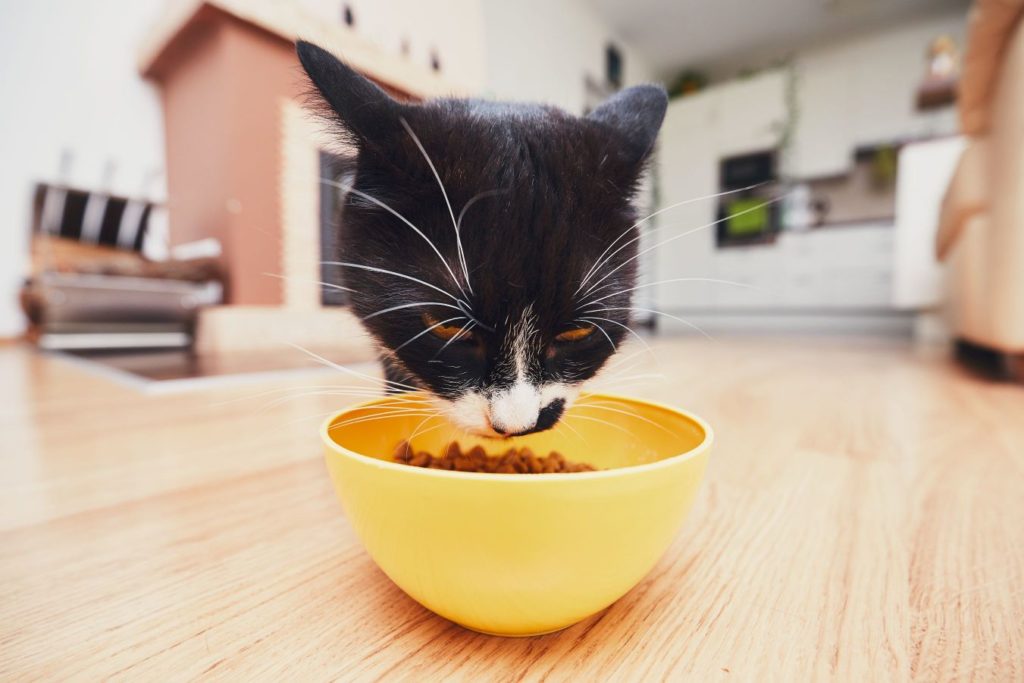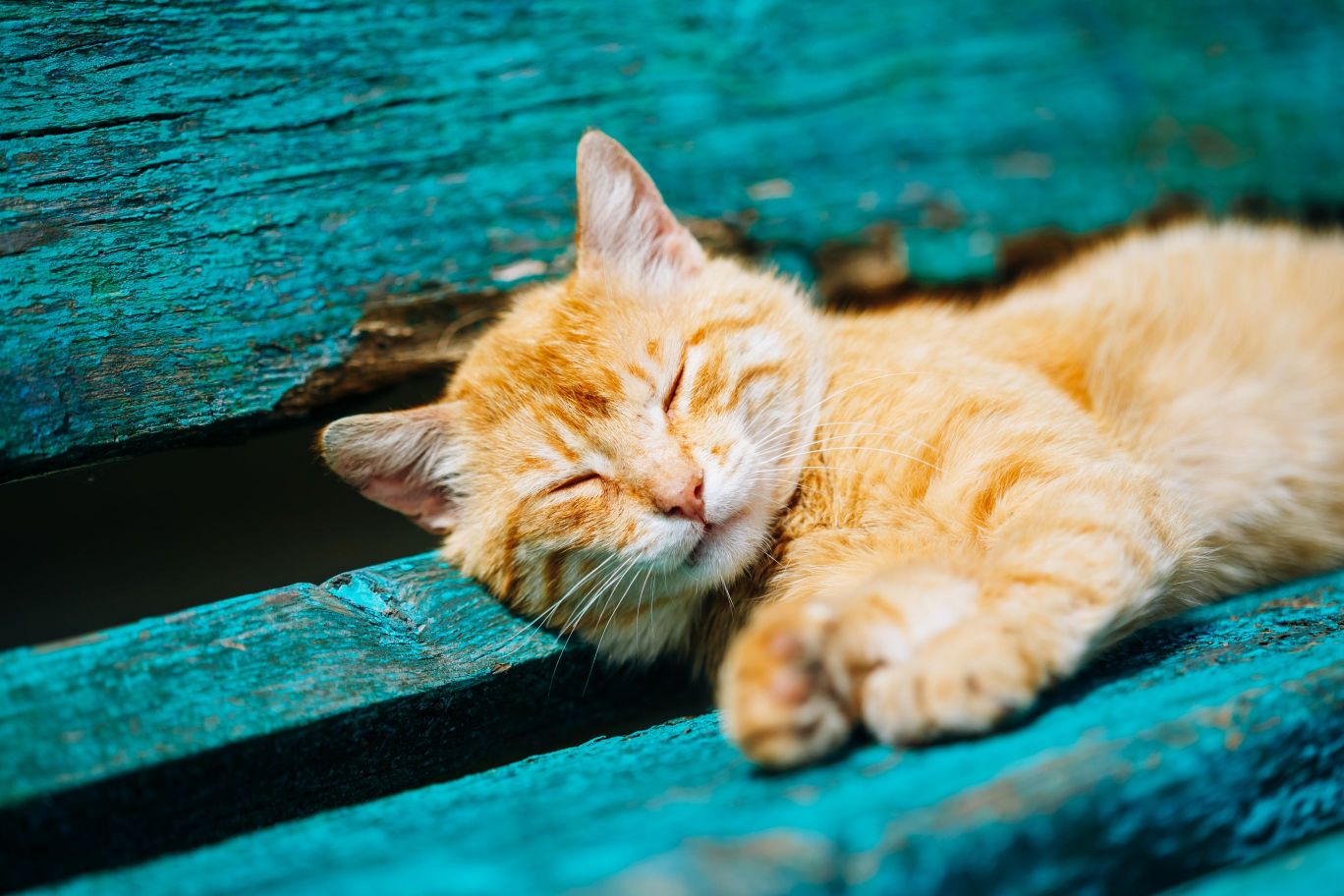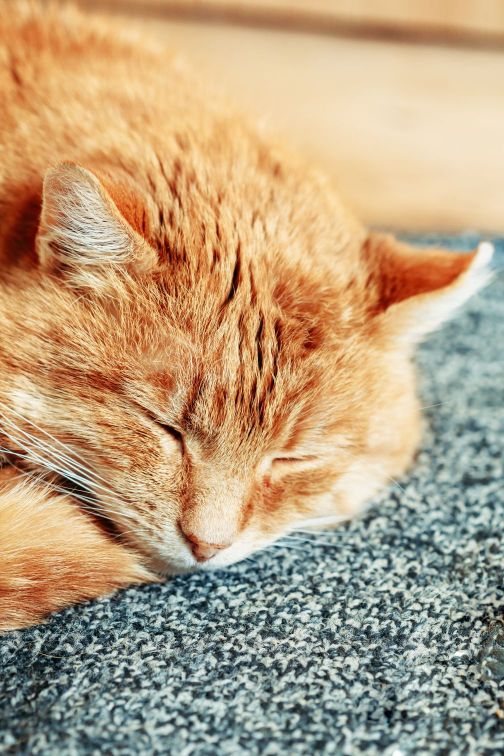
6 Signs You Have a Stressed Cat
The average cat spends 15 hours a day sleeping, although some felines stretch that number to 20.
It’s hard to imagine such a well-rested creature would ever experience anxiety or stress. But your four-legged friend might be feeling that way, regardless of how much shut-eye they’re getting.
You don’t want a stressed cat, either — such a state isn’t good for their minds or bodies. Nor is it good for you as a loving cat owner. You want your fur babies to feel good enough to sleep and meow at you to their heart’s content.
To ensure they’re at their best, look out for these symptoms of stress.
Signs You Have a Stressed Cat
Your cat can’t explain what they’re feeling — not even with meows. Instead, you should look out for these five behaviors in your feline that point to internalized anxiety or stress.
1. Hiding
Your cat may isolate themselves in a particular room or area of your home. This behavior often indicates that they feel stressed out. They may also be sick.
Don’t confuse this type of behavior with the typical attitude associated with cats, either. Sure, they like their rest — we’ve already covered that.
However, they shouldn’t be spending all of their time alone. If they do, their chosen solitude may be down to stress or illness.

2. Improper Use of the Litterbox
A cat who goes to the bathroom outside of their litterbox isn’t doing so to be mischievous.
Instead, cats use this move as a sign that something’s wrong. It can stem from stress, although it won’t be a generalized case. There are reasons why cats fail to go in their litterboxes.
They may be asking you to clean the litterbox. Or perhaps you’ve moved their litterbox, and they don’t like its new placement. Felines might also act out if you’ve reorganized furniture, changing up the layout to which they’ve grown accustomed.
All of these situations cause stress to your four-legged friend. So, if they start going outside of the litterbox, think about why it might be happening and fix whatever it is that could be causing them to act out.
3. Over-Grooming Themselves
Your cat grooms itself for multiple reasons. Of course, self-grooming rids their coats of dirt. But it can also eradicate fleas, and their saliva can help cool them on a hot day.
As such, don’t worry if your cat grooms at a regular clip. When you should be concerned is if you notice that your feline friend is licking themselves until the spot in question goes bald — near-constant grooming is a surefire sign of distress.
4. Changes in Appetite
Your cat may embody their anxiety by changing how and what they eat.
Perhaps your pet has stopped eating treats or meals that they’d typically nibble. Other cats will act oppositely when stressed, eating everything in sight. They might even hang out in the kitchen and meow for more kibble.
Sometimes, such behavior is the sign of a medical issue. Perhaps you’ve changed your cat’s diet recently, too — this can cause them to act out, as well. But in many cases, appetite changes are purely down to stress.
5. Aggression
Cats are notorious for their demeanor, which can be much more hot and cold than their doggie counterparts.
However, your cat shouldn’t be physically lashing out at you. If your pet has started to act aggressively toward you or your family, it can be a major sign that they’re stressed.
In most cases of stress-caused aggression, the behavior will appear alongside another symptom on this list. So, if your cat has stopped using their litterbox and has made an attack on you, they’re trying to send you a message — they’re stressed.
6. Meowing More
Your cat already meows when they want something. But if you notice they’re vocalizing more often than before, it could be a sign of distress.
This behavior is especially typical in older cats. Felines don’t quite grasp the concept of aging, so cognitive or physical changes leave them a bit confused. As a result, they start to meow.
One way to tell if your cat’s meowing is stress-related is to consider the time of day. If they meow during the times when they’re usually awake, it’s likely a normal vocalization. However, if they’re making noise at times when they’d sleep, you should look into their reasons for getting loud.

How Can I Calm My Stressed Cat?
Now that you know your pet is facing some stress, you will want to help them find balance once again.
Always start with a visit to the vet. Sometimes, these behaviors stem from an underlying medical issue. For your peace of mind, get the vet’s confirmation that your cat’s physically healthy.
You can try different methods to calm your cat’s stress from there. Perhaps your pet wants to play more. You might also try feeding them new, better food to soothe their mealtime meows.
If your cat is isolating or hiding, slowly make yourself part of their safe space. Go in there to play or interact with your pet. Then, slowly encourage them to branch out and rejoin the party in the rest of the house.
You might also consider giving your cat a CBD supplement. The all-natural substance has a slew of benefits for both dogs and cats — one of them is its anti-anxiety effects.
Of course, your vet can help you decide if this is a good step for your stressed cat. Once you do decide to give them a regular dose of calming CBD, be sure you know how much they need to experience its soothing effects.
Help Your Cat Fight Stress
Your stressed cat is lucky to have you in their corner. Together, you can overcome whatever it is that’s causing them anxiety. And then, you can return to your life with a cat who’s sleepy, goofy, moody and jumpy — all at the right times and in all of the right ways.
And, if you’re ready to embark on a CBD journey with your cat, we’ve got you covered. Click here to learn more about our feline-friendly tincture for your four-legged friend.

